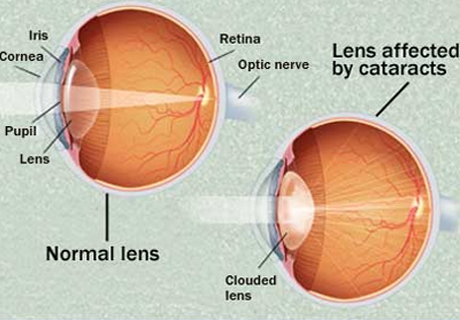Cataracts
A cataract is a gradual clouding of the eye's natural crystalline lens. The lens assists with focusing light rays onto the retina, which communicates images to the brain. After the cataract starts to cloud the lens, the vision changes. In the beginning, these changes can be corrected with a change in glasses; when a change in glasses no longer helps, then removal of the cataract can improve the vision. Things that can worsen cataracts include cigarette smoking, diabetes, and prolonged exposure to sunlight.
There are many different types of cataracts and different grades. Some are associated with aging, steroids, diabetes, trauma, and chemical exposure. Cataracts can be categorized as mild, moderate, or severe. Some cataracts require special sutures to hold the intraocular lens in place. Our office deals with complex cataracts, such as mature cataracts and traumatic cataracts.

Most cataract patients with early cataracts are unaware that they have them; the common complaints are dullness of colors, glare, and problems with night driving. Cataracts will gradually limit a persons ability to perform simple and basic tasks such as reading, driving, seeing road signs and even exercising.


